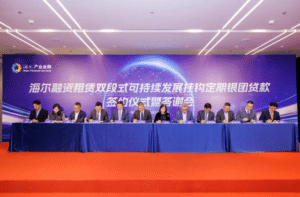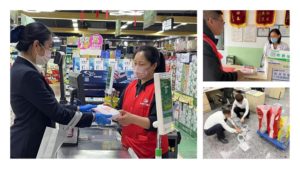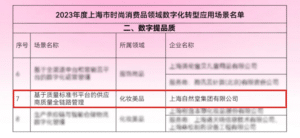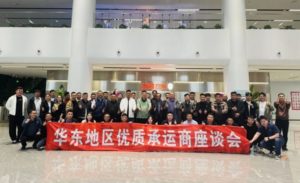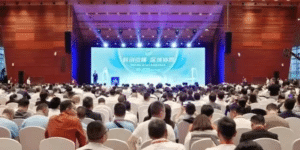Volvo Chinpeggie: The supermarket store model is effective
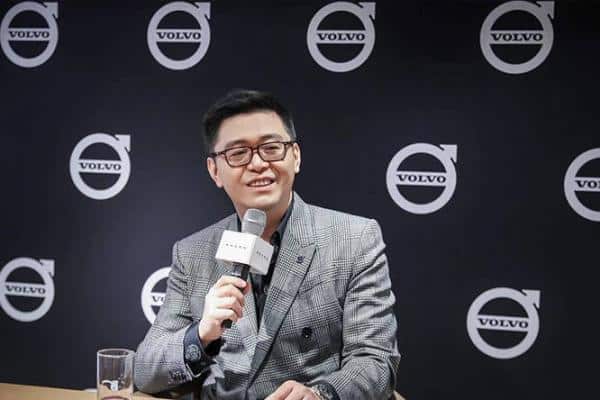
On July 25, Volvo held a mid-year talk show with the theme of “What is your sense of security in 2022”. Yuan Xiaolin, President and CEO of Volvo Cars Asia Pacific, and Qin Peiji, President of Volvo Cars Greater China Sales Company, made their talk show debut and shared Volvo’s achievements in the first half of 2022.
In the first half of 2022, which has a magical start, the auto industry is facing a greater supply chain test. Last year’s strong luxury cars were not spared from this cold winter. From April to May, luxury cars fell by more than 50% month-on-month. With the support of the “purchase tax subsidy” policy, the auto market finally picked up in June.
Faced with the changing situation, Volvo, which has always looked like a “Nordic Buddhist” style, stated that it will neverflatlie. Recently, Qin Peiji, President of Volvo Cars Greater China Sales Company, said: “Our market share rebounded very strongly in Shanghai in June, because our dealership team is still there, and there is no problem with the capital chain.”
But for the overall sales this year, Chinpeiji is cautiously optimistic about the benefits brought by the purchase tax subsidy policy, “I don’t think the car purchase subsidy will stimulate the entire market, but it will drive the sales rhythm forward. The increase in the auto industry is relatively difficult.” “.
In the stock market, on the one hand, Volvo is actively promoting the transformation of electrification, constantly enriching the matrix of new energy products, on the other hand, reshaping the channel system, integrating the original dealer channel with direct sales and agency models, and exploring a marketing system suitable for the era of electrification .
As a traditional luxury brand, Chinpeiji believes that the brand equity of the era of fuel vehicles cannot be fully brought into the era of electrification, but with the advancement of new energy transformation, it will eventually enter the era of pan-brands. Volvo, which was born in 1995, will continue to uphold the With respect for people, we adhere to the brand foundation of “safety, health and environmental protection”.
In the case of supply shortage, the priority is to ensure the supply of large vehicles, and the electrification product matrix is gradually being improved
In the first half of 2022, Volvo sold 291,300 vehicles globally, a year-on-year decrease of 23.5%. Among them, the cumulative sales in the Chinese market were 70,200 vehicles, a year-on-year decrease of 26.3%. But the financial side has not been greatly affected. In the first half of the year, revenue increased by 3.2% year-on-year to SEK 1456, and operating profit increased by 27.3% year-on-year to SEK 16.8 billion.
Chin Peiji said frankly that due to the impact of chip supply and logistics interruption, the supply was obviously insufficient in May and June. Because compared with big cars such as XC90 and XC60, the profits of small cars are relatively poor. Therefore, the supply of large cars is given priority, so the market share of XC90 and XC60 is still rising.
As an environmentally conscious Nordic brand, Volvo’s electrification timetable is tight. In 2018, Volvo announced that pure electric vehicles will account for 50% of the company’s total sales by 2025, and 100% of its products will be electrified by 2030. But in terms of product rhythm, Chinpeiji said that we have our own rhythm, which is generally the case with traditional cars, from fuel vehicles to plug-in hybrids to pure electric vehicles.
Currently in the Chinese market, XC60, XC90, S60, and S90 all have plug-in hybrid versions, while pure electric models are imported from small cars, including C40 and XC40. According to the narrow wholesale data of the Passenger Federation, in the first half of 2022, Volvo Asia Pacific new energy models (S60, S90, XC40, XC60 PHEV versions) sold 3,296 units, accounting for 5.2% of Volvo Asia Pacific sales. Globally, the data are more optimistic. Volvo’s global sales of hybrid vehicles account for more than 30% of the total.
Regarding the proportion of sales of new energy vehicles in China, Chin Peiji said that the XC40 pure electric version and the new pure electric C40 are currently on sale. The market they have entered is actually a relatively niche market, and the current market capacity is not enough. But there will be products coming up soon, and next year there will be 3 or 4 pure electric models, and the sales results will be reflected in the second half of next year to the beginning of the next year, and several market segments will be completed in the product matrix. Volvo has always said that pure electric vehicle sales will account for more than 50% in 2025. The planned product matrix should be supported, and the product itself has many industry-leading designs, such as being equipped with Luminar’s third-generation Iris lidar.
Faced with the outbreak of plug-in hybrid models in the Chinese market in 2022, Chinpeiji responded that Volvo still focuses on pure electric vehicles, and may maintain such a product sequence in the existing camp. It is confident to increase the proportion of (new energy) within one or two years, but it will be more difficult to break out. After all, the country’s policy on plug-in hybrids is definitely not as supportive as pure electric vehicles, and it may change.
Based on the overall situation of the industry, Chinpeiji believes that Volvo’s sales in the first half of the year are relatively stable, and the market share of luxury cars is also stable, which is basically the same as the same period last year.
Subsidize dealers to maintain combat effectiveness Newly added supermarkets and stores cut into the front end of the consumption chain
New forces led by Tesla set off an upsurge of channel reform in the auto industry through supermarket stores and direct sales models. Through the rapid landing of supermarket stores, the new forces quickly opened up brand awareness, carried out effective user contact, and effectively solved the problem of price reduction in 4S stores that consumers have been distressed for many years. However, the high cost of opening a store means billions in annual sales expenses. Currently, Tesla has a tendency to cancel some supermarkets.
Facing the challenges of new players, traditional car companies are hovering between change and invariance. Beijing Benz has made it clear that it will not give up valuable dealer resources. Great Wall Motor believes that there will be fewer intermediate links in the future channels. More manufacturers choose to combine multiple models and reintegrate the channel system, and Volvo has also invested a lot of energy in channel reform.
For the existing dealer resources, Volvo chooses to support them. During the Shanghai epidemic, Volvo launched a “retention plan for front-line sales consultants and after-sales technicians”. For employees who are still working at the end of June, each employee is guaranteed an income of 3,000 yuan. For dealers with high inventory, Volvo negotiates with the bank to extend the bank notes to ensure the normal operation of the capital chain. These two measures also helped Volvo quickly regain its market share in Shanghai after the epidemic, and sales in Shanghai experienced explosive growth in June.
In addition to traditional dealers, Volvo also encourages dealers to set up supermarkets. Qin Peiji believes that the supermarket store model has achieved obvious results, and the brand influence has been introduced at the front end of the consumption link. But from a business logic point of view, it is not fully established. Because cars are ultra-long-term consumer goods, when purchasing, it is not urgent to see this car at any time, but to spend a certain period of time to buy it. For example, Volvo usually takes about a month.
“In terms of channels, we encourage dealers to deploy in supermarkets and choose supermarkets for competition. We are also trying this model ourselves. It is impossible for all 280 dealers to open 280 supermarkets, but we have a plan , 10 have been opened in the first half of the year. There are still plans for next year, and I hope to learn from new forces and at least cut into the front end of the consumption chain in major cities.”
“I have to say that these direct sales consultants are much better at introducing brands and products than dealers, because dealers’ buying behaviors are concentrated in the bargaining stage. It will focus on the transaction. When you enter the store, he can’t wait to introduce the price to you immediately, and he can’t wait to sell you all the finance and insurance, which is determined by his original driving force.”
Currently, Volvo plug-in hybrid models are operating in an agency model, and dealers are transformed into agency service providers without the need to reserve inventory. Under this model, one-size-fits-all prices across the country can be guaranteed. The pure electric model is also equipped with a direct sales team. For traditional distributors, we also strive to advance sales capabilities and supplement capabilities in brand and product introduction links.
Chinpeji said frankly that Volvo is also looking at whether the supermarket model can continue. “I estimate that the two sides will reach a consensus on channels. Xiaopeng may have hundreds of supermarkets plus dozens of 4S stores, and Volvo may have more than 200 4S stores, plus 100 supermarkets in first- and second-tier cities.” .
The original brand equity cannot be fully transferred to the era of electrification. Volvo sticks to the foundation of “safety”.
In the first half of 2022, BYD won the global new energy sales crown, followed by Tesla, with sales exceeding 500,000 vehicles. Volkswagen, which is vigorously promoting electrification transformation, sold a total of 217,000 units in the first half of the year, and BMW sold a total of 185,000 units. The former overlord of fuel vehicles has yet to gain a firm foothold in the new energy market.
Chin Peiji also said that in the new era, the original brand value cannot be completely transferred to the era of electrification, and consumers do not follow the brand recognition in the original market. In the past, if you want to buy a car worth more than 300,000 yuan, Mercedes-Benz, BMW, and Audi must come to your mind, and Volvo, Lexus, and Cadillac must be the second-tier ones. But in the electric age, he will definitely consider Tesla, Xiaopeng, Weilai, and Ideal. So at the current stage, fuel vehicle companies are suffering, because you are not in the customer’s choice list, or you are at the bottom, or you have to give up the price.
However, Volvo believes that as more companies join electrification, they will not be distinguished by new power brands or fuel vehicle brands in the future. It is just a matter of time. For example, no one will distinguish between a feature phone and a smart phone when buying a mobile phone, but users need to distinguish who represents the high-tech, who represents the music phone, who represents the camera, and who represents the light of domestic products, etc.
In the era of electrification, when all employees are considering buying electric cars, it does not mean that everyone must buy a brand new brand, and will eventually enter the era of “pan-brand”. Therefore, Volvo still sticks to the foundation of “safety”, always pursues safety, health, and environmental protection, supports independent thinking, and cares for life.
As we all know, Europe vigorously promotes electric vehicles for the sake of environmental protection, and environmental protection of Chinese consumers has become a topic of concern to more and more users. “Twenty years ago, when you talked about environmental protection with consumers, 99% of them had no idea, but now when you talk about environmental protection and sustainability with consumers, at least 30% of consumers resonate with you. So everyone slowly Slowing down will increase the concern for environmental protection and the earth, and in the future brand recognition space, Volvo still has a foothold.” Chinpeji said.
With the advent of the era of “pan-brand” in the future, users will also become “pan-crowd”. A user who pursues a sense of security still pursues a sense of security in the era of electrification. Users who like extreme speed driving still pursue extreme speed driving in the era of electrification. For Volvo, it’s just about observing which groups of people are changing. Which groups of people are expanding, which groups are shrinking, and what changes have occurred in their communication habits.
Chin Peiji said, “It is indeed a challenge to re-transfer brand assets in the new era. There must be a period of brand chaos in the middle, that is, ABB is no longer what pops up in consumers’ minds when they buy. Of course, but what we have to do is to stand up to the brand positioning.”
“For us, brand value is an asset, and certainly not a burden. It cannot be said that what is traditional is bad, so we need to consider how to better spread it on this basis.” Based on changes in user groups, Volvo is also adjusting its communication methods. Slowly change from a mode of “speaking with oneself as the core” to a mode of “speaking with consumers”.
“We joked that there are more people who talk about human beings, and there are fewer people who talk about their own superiority. Even if we talk about safety and technology, we hope to speak in a form that others can understand. We shot a lot of videos, For example, on Children’s Day, we talk about the remote control of automatic driving, and use this lively form to let everyone see where your safety is reflected. For example, interview programs, talk about how to maintain your own independent thinking in the new era, and don’t be engulfed by the noisy world And decline, emotional and rational, are making efforts in this area to shape the brand image.


